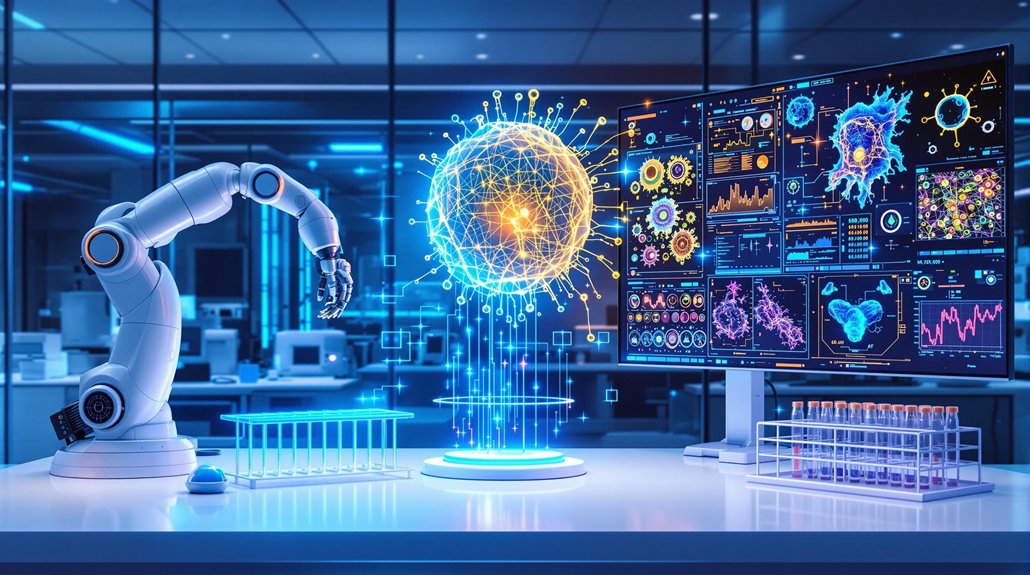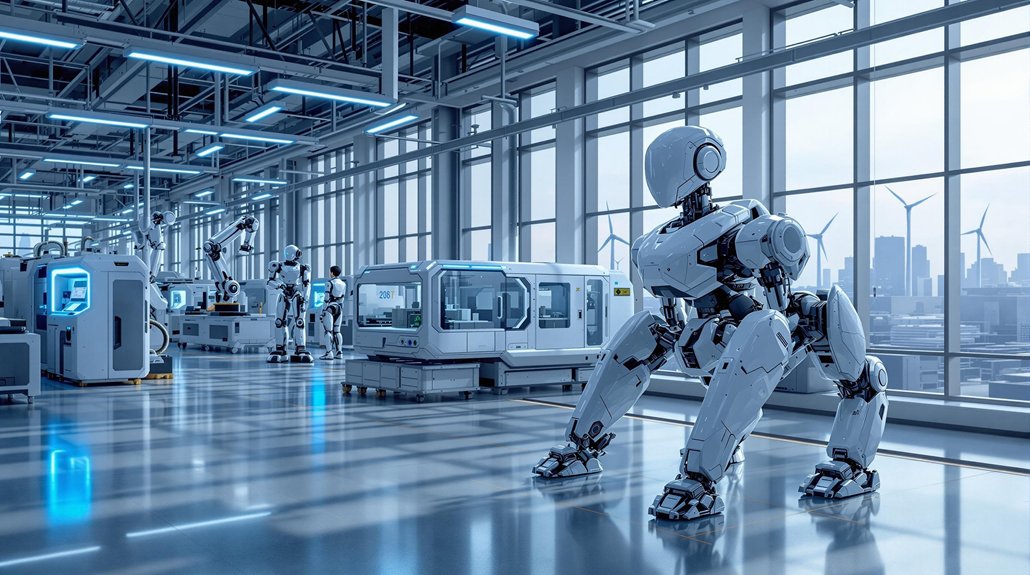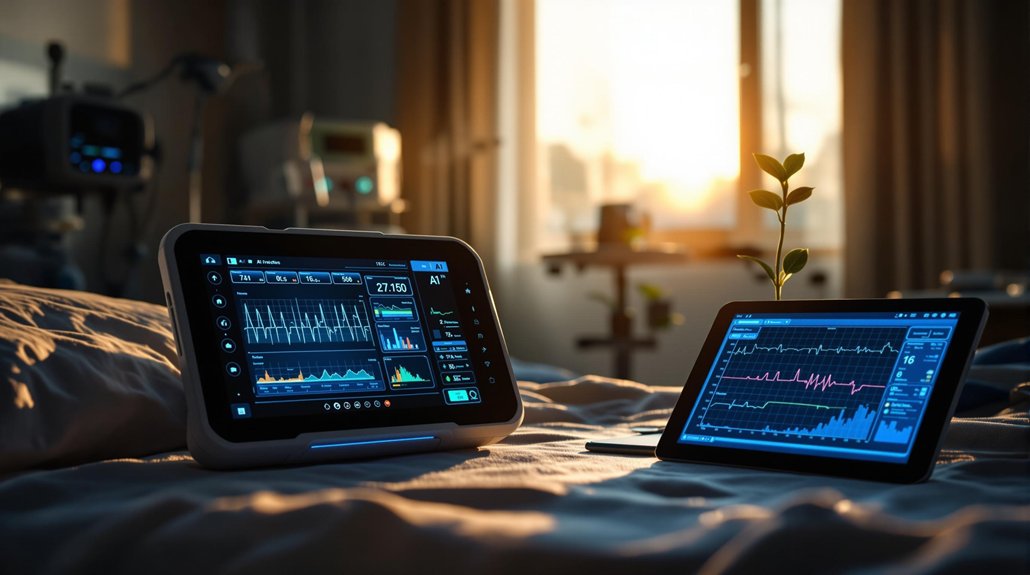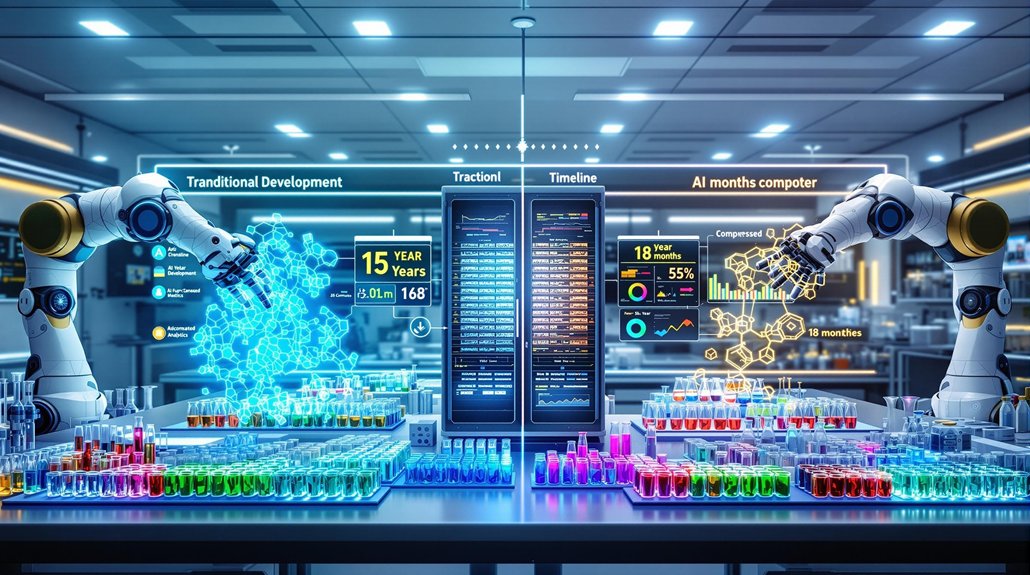AI is transforming healthcare rapidly. The global AI healthcare market will grow from $22.4 billion to $208 billion by 2030. These technologies detect diseases earlier than human doctors, with 72% of physicians noting improved diagnoses. Virtual nurses, AI chatbots, and robot surgeries are becoming common. These innovations could save billions in healthcare costs while improving patient outcomes. The next decade promises even greater medical breakthroughs as AI tackles previously unconquerable diseases.
Nearly every aspect of healthcare is being transformed by artificial intelligence. What was once a small industry has grown into a massive global market valued at $22.4 billion in 2023. Experts predict this number will soar to $208.2 billion by 2030, growing at an impressive rate of 36.1% annually.
North America leads the way with nearly 59% of the market share, but Asia-Pacific is catching up fast with its 42.5% growth rate. In Europe, the AI healthcare market is expected to hit $50 billion by 2030. This growth isn’t surprising when you consider that 94% of healthcare companies already use AI in some way. Despite this rapid adoption, about 75% of leading healthcare companies are still in the experimental phase with Generative AI.
AI’s impact on healthcare is far-reaching. It helps doctors spot diseases earlier and more accurately. Virtual nursing assistants are becoming common. AI-powered chatbots are projected to save $3.6 billion globally by 2025. Robot surgeons are on the rise too, with that market expected to reach $40 billion by 2026.
AI is revolutionizing healthcare by improving diagnosis, enabling virtual nursing, and powering surgical robots—all while reducing costs dramatically.
Perhaps most exciting is AI’s role in drug discovery, a market that could hit $4 billion by 2028. Over 42% of EU healthcare organizations are currently using AI for disease diagnosis, with this number expected to rise. Overall, AI is expected to cut healthcare costs by $13 billion by 2025, potentially saving 5-10% in healthcare spending within five years.
Doctors are noticing the benefits. About 72% believe AI helps most with diagnosis, while 61% think it will lead to better outcomes for patients. AI can spot tiny signs of disease that humans might miss and help create personalized treatment plans. Companies like Google DeepMind are developing systems that can identify eye diseases with remarkable accuracy.
But challenges remain. Privacy rules can make it hard to collect and share health data. Laws need updating, and healthcare workers need training. Patients want clarity too, with 89% demanding transparency about AI use in their care.
The future looks promising. AI will streamline paperwork, influence doctor decisions, and might even show more empathy than human doctors in some cases. By 2030, AI could play a key role in bringing healthcare to everyone worldwide.









